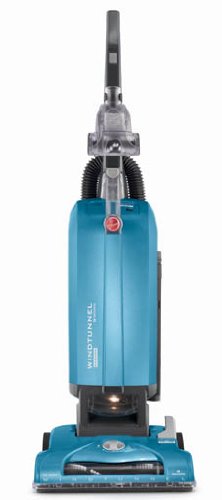Dyson Vacuum Cleaners: The New Kid on the Block who taught the Big Boys some Lessons
Article by Robin OBrien
Prior to June 1993 the world was a quiet, traditional, boring place. At least it was for vacuum cleaners. The introduction of the Dyson took other manufacturers by surprise and shook them out of their complacency. The world of vacuums was never going to be the same again.
Dyson is now a legendary company. Just about everybody’s knows the product. It’s become a design icon. It’s considered to be a thing of beauty and owning one is considered ‘de rigueur’ in some circles. All this, for a vacuum cleaner? It’s not hard to understand when one takes a look at how things used to be.
Just about everyone owns a vacuum cleaner. Prior to Dyson, vacuuming was seen as one of the least liked chores. Most people didn’t even know what brand of vacuum cleaner they owned. James Dyson was probably no exception. But he had the exceptional ability to ask if a product we took for granted and despised could be made to work better. In 1978, while vacuuming his home, James Dyson realized his bag vacuum cleaner was constantly losing suction power. He noticed how dust quickly clogged the pores of the bag and blocked the airflow, so that suction dropped rapidly. He set to work and, five years later, the world’s first cyclonic bagless vacuum cleaner arrived. He originally had offered his revolutionary centrifugal-force, bagless vacuum cleaner patent to the world’s leading vacuum cleaner manufacturers: they all turned him down. Not to be defeated, he began making the Dyson vacuum cleaner in a factory near to where he lived in England. In less than 2 years, Dyson was the UK’s best-selling vacuum.
At first the ‘big boys’ – Miele, Bosch, Siemens, Electrolux and others – tried to stop Dyson showing how their models clogged and lost suction. Later, manufacturers started to admit that bags reduced suction, and then tried to jump on the bandwagon to produce ‘bagless’ vacuums. But these imitators were doomed to failure as they didn’t employ the same revolutionary technology of the Dyson: the clogged up and lost suction just like their bag vacuum cleaners. Meanwhile 60% of people were buying a Dyson because it was recommended to them.
Being the market leader in the UK is okay, but Dyson knew, that to be an international brand, the company would have to conquer the US market. In 2002, Dyson came across the pond for the first time. It wasn’t going to be an easy market to crack. Vacuum cleaners were thought of as a low priority – if they were thought of at all. For decades, the market had one dominant leader; Hoover. This company and the other smaller manufacturers all made pretty much the same machine. Vacuum cleaners were severely lacking in innovation, so retailers were forcing the industry into lower margin plays. In response, Hoover, Bissel, Dirt Devil and Eureka had flooded the market with cheap, inferior vacuum products that pushed the average price of a new machine to under 5.
Dyson entered this saturated, and stagnated, market with its revolutionary design. It made the promise that no suction would be lost no matter how full the vacuum was or how old the vacuum was. It even stretched most consumers’ bounds of credibility with a price tag of 0! However it didn’t take long for the public to pay attention to this new company. Even though the price tag was many times that of its competitors, Dyson vacuum cleaners flew out the door. The market share figures speak for themselves. In 2003 Dyson had 2.4% of the market share compared to Hoover’s 23.6. One year later, Dyson had 13.3% compared to Hoover’s 19.5%. Dyson had arrived and was here to stay.
The growth of Dyson as a brand name is phenomenal. It’s even more astonishing when you consider that many people aspire to own one; a humble vacuum cleaner. The new kid has arrived and continues to lead the pack; the other big players are still playing catch-up.. Hoover’s Vice President for Europe, Mike Rutter, said on UK national TV: “I do regret that Hoover as a company did not take the product technology off Dyson; it would have lain on the shelf and not been used”. Millions of consumers are glad they didn’t.
About the Author
Robin O’Brien is founder of a website dedicated to promoting the top rated vacuum cleaners available on the market today; including Hoover, Kirby and Dyson vacuum cleaners amongst others.


